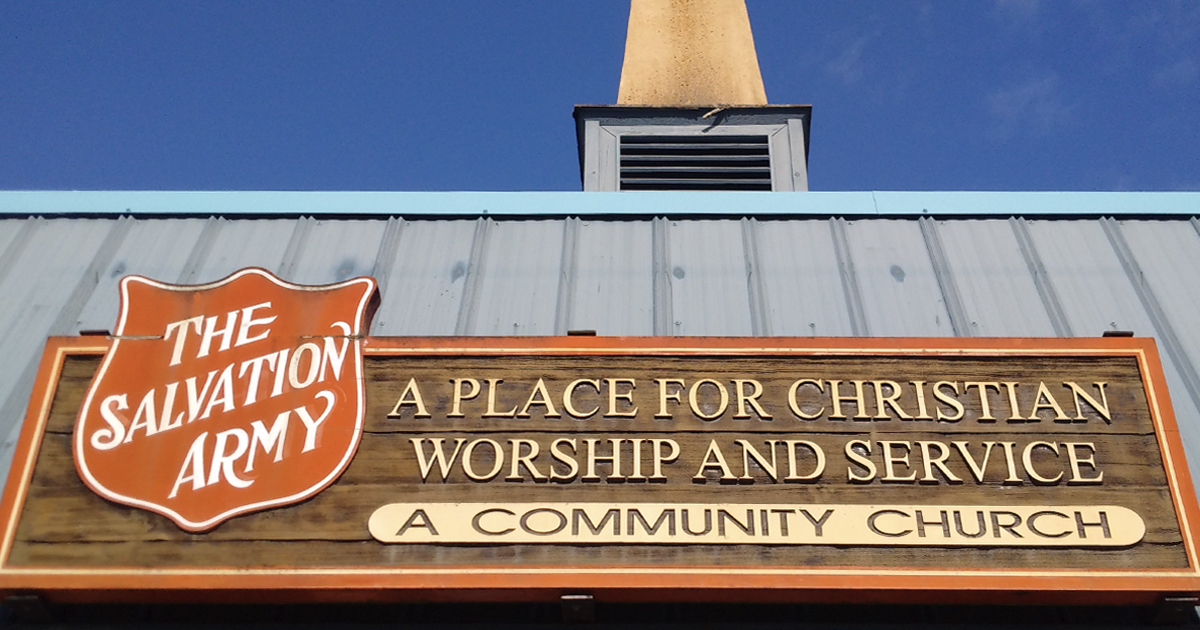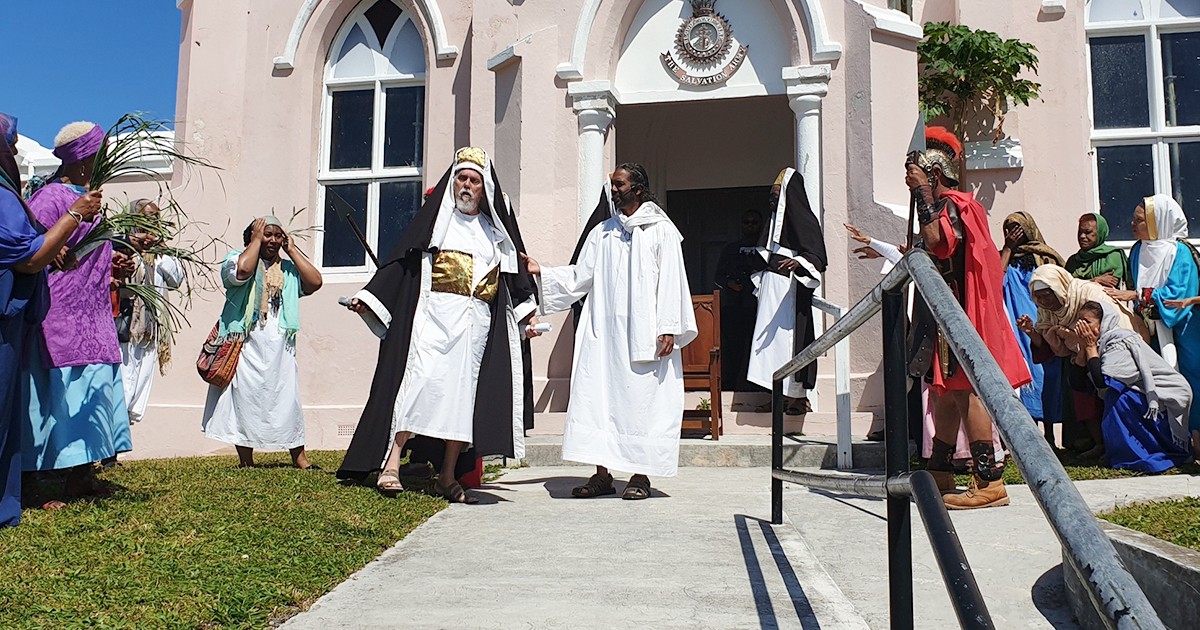 If you are presently involved in a congregation, you are involved in a church that is in trouble,” challenged Thomas Long, the keynote speaker at the Festival of Homiletics conference I attended last year. He went on to say that regardless of our denominational persuasion, we are all sailing in boats that look the same. Together, we float on a churning sea that batters us with waves of cultural complacency and societal indifference, causing us to redefine how we understand the Church's place in our world.
If you are presently involved in a congregation, you are involved in a church that is in trouble,” challenged Thomas Long, the keynote speaker at the Festival of Homiletics conference I attended last year. He went on to say that regardless of our denominational persuasion, we are all sailing in boats that look the same. Together, we float on a churning sea that batters us with waves of cultural complacency and societal indifference, causing us to redefine how we understand the Church's place in our world.
Some of us are energized and encouraged by this because we sense something new breaking in upon us. Others view the landscape with questioning, fear and skepticism, or perhaps have lost hope and struggle with a feeling of disillusionment.
In Church Next, Eddie Gibbs echoes this theme when he suggests that mainline denominations are facing an avalanche of problems that place question marks over their future. With aging congregations, shrinking numbers, emptying pews, depleting financial resources and the increasing complexity of societal dysfunction, how is the Church to stay afloat?
There are many congregations that have not found their lifeline in the midst of their trouble and are aimlessly searching for the familiar beckoning lights of home. Gibbs suggests that it is not enough just to batten down the hatches and pray the storm will pass. The day has come for the Church to recognize the trouble on its radar.
The Good Old Days
While navigating these turbulent times, there are three dangers that confront us. First, we can become solely dependent on memories to shape our perception of what the Church should become. “If we could only get back to the days when ….” “Remember when the youth used to spend every night at the corps?” “Remember when the main social event in town was the corps potluck?”
While our history should never be buried, we have to question whether these remembrances enhance or limit our vision of what the Church can become. The challenge is to extract the philosophy that has informed our history and to use this to propel us forward in relevant mission for today. In some respects, our memories might not take us back far enough to understand the kind of ministry to which we are being called.
Gibbs goes on to say that “the Church in a postmodern era must be prepared to witness with vulnerability and humility from the margins of society, much as it did in the first two centuries of its existence.” We will definitely have to reach beyond our own lived memories as we draw insight and energy from the larger story that has defined the Church.
Mirror, Mirror …
Second, there is a danger that churches in trouble only seek to become mirroring bodies. As Thomas Long suggests, we often think we should mirror or copy what seems to be working for the church down the street. We look to the success of others and think this is the answer to all our problems. Let's look at Willowcreek. What are the latest trends at Saddleback?
While we should not minimize the insight that can be gained from Christian communities experiencing success, the danger is that our denominational distinction gets swallowed up in the methodology and identity of others. If God intended every Christian community to look the same, he would have created it so. When churches in trouble seek only to become mirroring bodies, they lose the opportunity to stand out with a unique witness to contemporary culture.
Woe is Me
Third, when the Church is in trouble we risk the possibility of becoming lost in our lament. So today's society allows hockey games, soccer practice and birthday parties to take priority over Sunday morning worship. It's clear that commitment to the Church has taken on a very different profile, especially over the last 20-30 years. To those who have lived a different picture of what it means to be 100 percent invested in Christian community, this can be disheartening. We grieve the loss of what Christian faith used to represent. Similarly, lament comes as we have debated intense questions about Army symbolism and identity. In reshaping our perspective of what the 21st-century Salvation Army looks like, we have had to come to terms with a dying form of Salvationism in order that a new one might emerge.
If, however, we view our present trouble through the lens of Easter, we recognize that it is only through our experience of death that resurrection can come. Something has to die in order that something might live again. In this respect, perhaps our grieving process has a specific purpose.
While it might be a human tendency to want to pray our troubles away, maybe the reality of our troubles is intentionally used by God to take us to new places of faith. The words of Jesus to his disciples echo in our ears: “In this world you will have trouble. But take heart! I have overcome the world” (John 16:33). If Jesus knew this would be our reality, perhaps it is time to start embracing our troubles as means of grace, instead of lamenting them.
The final picture that helps make sense of our dilemma occurred on the day of Pentecost. The disciples were together in the upper room, when suddenly a violent wind from Heaven came and literally broke everything apart. As the Holy Spirit was breaking in, barriers were being broken down and a new expression of Christian community was being born (see Acts 2).
Note, however, that in that moment, problems were not necessarily solved; in fact, some were created. Immediately there was an accusation of public drunkenness, rather than confirming the God-moment that was evolving. Peter was thrust into the pulpit to offer his own interpretation to defend the work of the Spirit.
As well, the coming of the Holy Spirit did not solve poverty or sickness. In Acts 3, we encounter a crippled beggar. Throughout the Book of Acts we see evidence of apostles being persecuted, people searching to make sense of life and faith, and an ongoing need for national and individual repentance. Trouble does not fall very far from the Church's radar, even after the Spirit makes a glorious entrance. In this light, we begin to understand more of what the Christian journey is about.
Yes, the Church is in trouble. Because we are in the world, maybe it will always be so. But the good news is that God uses our trouble as a conduit for his grace. By pressing through our challenges, we are brought to deeper experiences of faith and life in this world. And in the process, God gives us the gift of his enabling Spirit to carry us through the churning sea, upon which we all seem to be sailing.
Major Julie Slous, D.Min., is a corps officer, with her husband, Brian, at Winnipeg's Heritage Park Temple. She also serves as adjunct faculty at the College for Officer Training.










This is an excellent article. Is the church in trouble??????? Yes, if we are true to ourselves and look around. Its true the number of congregation is depleting. Finance can be an issue to maintain large church buildings. With globalization the people are moving around, so a church can have many cultures, interest, etc. We may be very success yesterday, but if we are still using tools of yesterday for todays ministry and to meet the needs of the people.... than we are going to face the trouble.
I believe to overcome this trouble is to tailor our ministry to the needs of the people in the community. The needs of the people changes as the society changes. People of this generation want an answer, they need to be challenged, etc.
Brought up in a fast moving multicultural society, I believe for effective growth, there need to be good administration, management and also important to do a good market research of the needs. Its not copying the church next door because they are successful.
I am proud to see the corps in Indonesia are growing. Its common to see hundreds of people in a congregation. The corps are always filled with young people. Last year the Territotorial Commander enrolled over 1,000 soldiers in one service. When I look at it, the officers carry out their services in meeting the needs of the people. The spirit of caring for each other... ie the culture of the community spirit is very strong.
Maybe we can learn from each other and to keep on improving on what we are doing through the guidance of the Holy Spirit.
John Umasanthiram
Indonesia.